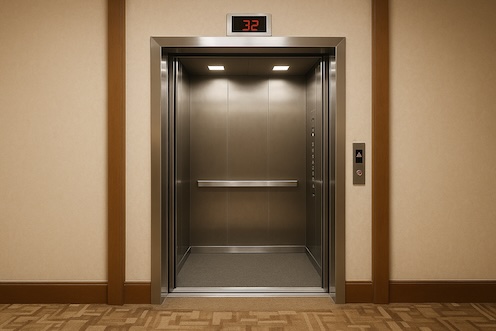In the summer of 2024, a seaside resort hotel faced unprecedented complaints. Eight elevators in the main building frequently malfunctioned: automatic door opening and closing, floor jumping, wedding procession trapped, and the intelligent system completely malfunctioning.

Data and technical issues
The hotel invested 8 million yuan to upgrade its IoT elevators in 2021, with the goal of achieving "zero waiting". However, three years later, the accumulation of 27 million records in the database became a burden: the algorithm was "paralyzed" due to redundant data, resulting in a waste of 30% of peak transportation capacity; Salt spray causes 17% sensor misalignment; Cloud and hardware conflicts caused 23 shutdowns. What's even more embarrassing is that VIP guests were sent to the linen room, causing ridicule.
Three renovation options
The engineering director is facing three opinions: firstly, to completely replace the latest AI elevator, but with high cost and long construction period; Secondly, turning off the IoT function and returning to the traditional mode will result in losing the young customer base; Thirdly, the compromise solution is "intelligent subtraction", which retains the core scheduling function and shortens data storage to 90 days.
Common pain points in the industry
A survey shows that among 627 hotels that have completed intelligent transformation, 48% have excessive data collection, 35% have encountered "free upgrade" traps, and 21% have been hacked due to vulnerabilities. More seriously, 90% of the contracts do not specify the responsible party for data failures, making it difficult to hold accountable for accidents.
Learn from experience
A hotel group in Hangzhou solved the problem through three measures: retaining only 12 core indicators and removing controversial features such as facial recognition; Edge computing is introduced and 95% of the decisions are made locally; Simultaneously retaining traditional mechanical control for emergency situations. As a result, during the peak of the Spring Festival travel rush with an average of 8000 people per day, the fault response time decreased from 17 minutes to 3 minutes, and privacy complaints were cleared.
Conclusion
The hotel industry competes to install the 'strongest brain', but often overlooks the essence of service. True intelligence is not about endlessly piling up data, but about returning elevators to their original intention of being "quiet, safe, and reliable". What may be saved is cost, but what may be lost is reputation and trust.
